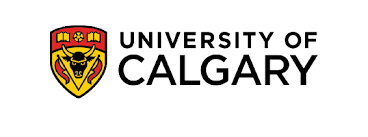University of Calgary brains develop strategies for climate change solutions for southern Alberta during Hunter Hub Solutions Lab
With increased dialogue on climate change both nationally and globally, 2022 was the perfect time to challenge students to propose solutions to combat the issue in southern Alberta.
Supported by a partnership between the Hunter Hub for Entrepreneurial Thinking and the University of Calgary’s Office of Sustainability, a five-week challenge — the Hunter Hub Solutions Lab: Climate Change Solutions for Southern Alberta — tasked students with developing impactful project ideas that, if implemented, would contribute to a solution to climate change. In addition to being feasible, with clear steps for implementation, the proposed solutions also needed to align with relevant United Nations Sustainable Development Goals.
“Creating opportunities for students to develop entrepreneurial thinking skills to solve real-world problems is a rewarding experience that we’re thrilled to have offered again this year,” says Anica Vasic, the Hunter Hub’s director of talent. “The Hunter Hub Solutions Lab series was created to give students the space to explore their growing interest and passion for solving community challenges.”
The challenge kicked off during UCalgary’s Sustainability Week Oct. 24 to 28. Teams worked on their solutions to win cash prizes. At the end of the five weeks, the following winners were announced:
First place ($1,000): Plug Out is a user-friendly device that enables users to prevent the use of “ghost power” by automatically disconnecting electronics from the power source. This solution addresses UN Sustainable Development Goals 9, 11 and 12. Team members include Naimah Adepoju and Rylan Laplante (undergraduate students in Physical Sciences); Arpit Chitkara (undergraduate student in Computer and Information Sciences); Awani Khatu (undergraduate student in Mathematics and Statistics); and Jennifer Shearer (undergraduate student in Psychology).
Second place ($500): Waste to Energy, an energy plant with carbon-capture technology, is designed to recycle additional incineration waste while producing electricity. The creation of such a facility would also create sustainable jobs in southern Alberta. This solution addresses UN Sustainable Development Goals 7, 8 and 13. Team members include Deanna del Valle (undergraduate student in Biological and Biomedical Sciences); Akib Al Mahi (undergraduate student in Computer and Information Sciences); Zanjeel Anees (undergraduate student in Multidisciplinary Studies); Amanda Tran (undergraduate student with the Schulich School of Engineering); and Bradley Brunton (undergraduate student in Social Sciences).
Third place ($250): Rotate Renewables is a partnership solution that sees the company teaming with rural farmers in southern Alberta to use the land to house equipment that generates electricity that would be sold to the power grid. This solution addresses UN Sustainable Development Goal 7. Team members include Stephanie Tan, Huda Abbas, Allison Guthrie and Abduljatel Wadouh (undergraduate students with Schulich), and Devjyoti Dutta (undergraduate student with the Cumming School of Medicine).
The winners were selected by a panel of judges that included UCalgary faculty, staff and local entrepreneurs.
“Taking part in the Hunter Hub Solutions Lab: Climate Change Solutions for Southern Alberta was an amazing experience,” says Khatu. “Having done pitch competitions in the past, I found that this specific solutions lab was a unique experience in that there was a lot of freedom and support for us to find a problem within southern Alberta that resonated with us.”
The challenge enabled students to engage with one of the most critical challenges of our times, says Rachelle Haddock, MDes’10, manager of Sustainability Partnerships and Engagement. “It was truly exciting to see what the students were able to accomplish over a short time frame alongside developing sustainability leadership competencies, such as systems thinking, stakeholder engagement and anticipatory thinking,” Haddock says. “I am inspired by the positive change that these student leaders will create throughout their careers.”
The challenge was funded by Experience Ventures, a national program led by the Hunter Hub that enables post-secondary students at 11 institutions across Canada to develop critical skills alongside real-world innovators through entrepreneurial-thinking placements. Students received $525 each for their participation in the challenge. Honorariums were awarded through the support of the Hunter Family.

